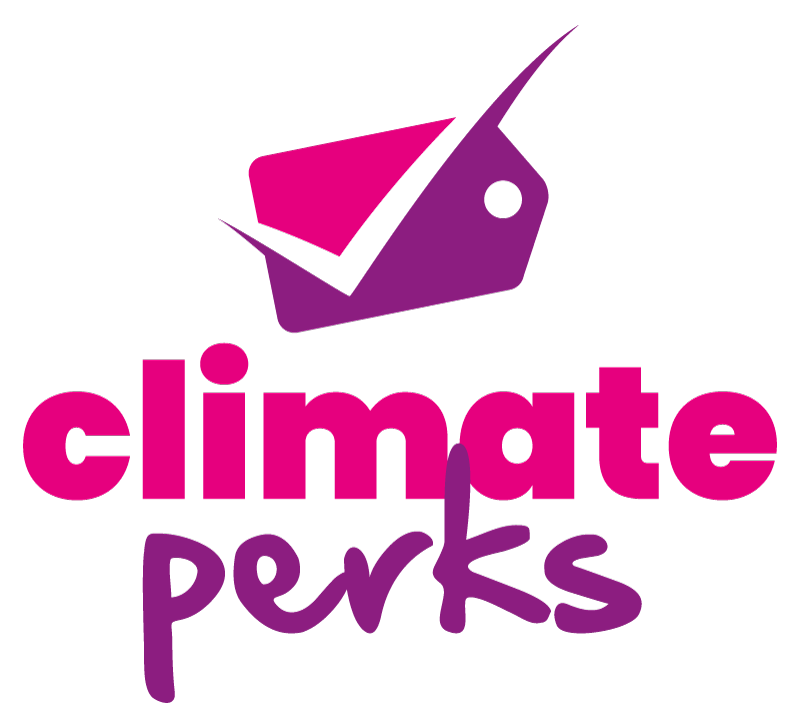How to get your employer signed up to Climate Perks
Keen for your workplace to offer additional time off for flight-free holiday travel? We’re here to help.
Who to speak to
Climate Perks is an employee benefit, and as such usually falls under the domain of a company’s HR or operations team. If your workplace has a sustainability team or environment working group, then it could be an idea to bring them onboard first so that they can help you persuade senior management.
Remember, companies want to show they’re serious about climate change. Climate Perks is a quick and inexpensive way to do that. So getting management onboard is often much easier than people think.
What to say?
The main argument for Climate Perks
Minute for minute, and mile for mile, flying is the single most polluting action an individual can take. Yet, unlike other polluting lifestyle choices (diesel vehicles, single-use plastic etc.) emissions from air travel are on the rise - so much so that aviation is now the fastest-growing cause of emissions globally. With no technological solution to flying on the horizon, behaviour change is key; we need more people to swap planes for slower greener transport like trains and coaches.
Workplaces are key for igniting this change. Not only do they have the power to ensure the choice to travel by train or coach doesn’t reduce someone’s leisure time, but they are also important spaces for social impact. With the workplace so central to modern life, employers can harness the social power of their staff to unlock this new way to cut carbon - pushing beyond more traditional business-focused environmental policies.
Climate Perks is a quick, simple, and inexpensive way that businesses can empower their employees to choose flight-free holiday travel.
Build your case
Of course, we all want to take action on climate, but, it might also be a good idea to raise the other benefits the scheme can bring your organisation:
"For Bennetts Associates, joining Climate Perks is a clear signal of our climate leadership, making it explicit both internally and externally that this is a key part of the way we do business. We recently told a recruitment agency about it and they were very excited about it, saying it’s exactly the sort of forward thinking policy that people want."
Brand image and reputation:
Demonstrating leadership in environmental sustainability is an increasingly important way for companies to win clients and customers. All Climate Perks employers are able to use the Climate Perks accredited stamp of recognition, be listed publicly on the Climate Perks website and be invited to benefit from public PR and press coverage.Staff recruitment and retention:
Research backs up the argument that workplaces who care about staff wellbeing, should take action on climate:Three-quarters of people under 54 are concerned about the climate: the majority of almost any workforce.
86% of millennials & GenZeds prefer employers that report lowering their environmental impact.
61% of 18-34 year olds would prefer to work for an employer that helps them to take clean travel on holiday.
93% UK workers say action on climate important for motivation and wellbeing.
35% UK workers (and 53% GenZeds) would consider quitting if they felt their employers weren’t doing enough on the issue.
Climate Perks employers can meet this rising demand from staff and potential recruits, assisting them in making lifestyle choices that reflect their values which strengthens staff well-being, satisfaction and loyalty.
Draw from examples
It’s often important for employers to hear from other organisations who have already implemented a policy (particularly of a similar size, location or sector). The good news is Climate Perks initially launched in 2019, so we have a strong network of Climate Perks employers who can give testament to the scheme and answer questions about how it’s going in their workplace.
There are a few ways you can hear from existing members:
Read the impact report, drawing from interviews with Climate Perks employers and their teams.
See our case studies page.
Ask us directly. If you can’t find what you’re looking for, just let me know. We have numerous quotes and case studies that aren’t published online, and if we can’t find something that you need, we’ll try to connect you with a Climate Perks employer to speak to directly.
Not heard back from your HR team?
Implementing new HR policies takes time, so be patient and don’t feel disheartened if it doesn’t all happen straight away. Chances are your management team will have a fair amount of back-and-forth getting internal buy-in and then building and reviewing policy documents. And while the climate crisis is urgent, something like this is not usually at the top of a priority list of those working on payroll and recruitment - so be patient.
That being said, there’s every chance that it may get lost or forgotten in someone’s inbox. So we’d suggest sending a polite email asking for a progress update after a month or so of not hearing back. You can also offer your own support (eg. sending over documents from us, or putting us in touch directly).
Still having trouble getting your workplace onboard?
Send us an email today and we’ll be in touch to help.
